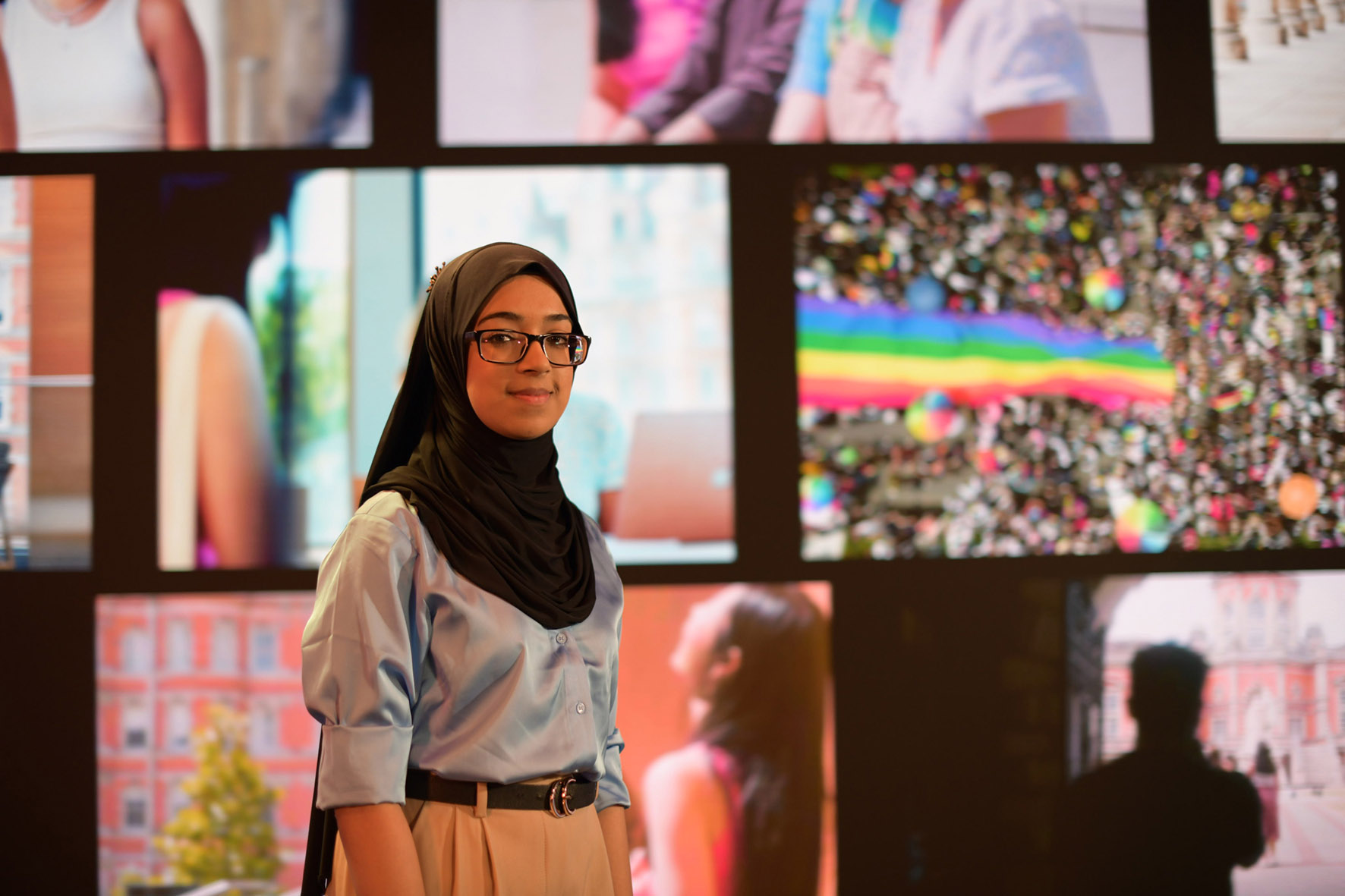100 Faces celebrates the stories and achievements of students who were the first in their family to go to university. The campaign amplifies the voices of first-generation students by exploring their background, what they’re doing now, and how going to university changed their lives. From Royal Holloway, Sana Rehman has been selected as one of their Higher education trailblazers- read her story below.

What does it mean to be the first gen in your family to go to university and why does it mean so much?
Being the oldest daughter and having four younger siblings; I feel a responsibility to act as a role model for them, as they will gain an understanding of what university life is like through my experiences. My parents had a different experience of university, in a different country, in a different time.
It’s eye-opening to learn from them about what they could have done differently when they were at university and to take on their advice, which is beautiful because they love watching me grow. This is what university has really helped me with – it has given me the opportunity to grow and inspire my family, particularly my siblings, through leadership opportunities.
It also makes me feel very happy to take on challenges. Being the first person in my family to attend higher education, I’ve had to figure it all out on my own; from navigating the unfamiliar college application process, dealing with financial constraints, and adjusting to the academic demands of higher education. Successfully overcoming challenges makes the university journey even more meaningful. It makes me proud that I have had the opportunities at Royal Holloway to represent my background.
Why do you think university if still relevant, especially to those whose families have never gone on to higher education before.
In my journey, I have found university to be very valuable and incredibly insightful. For those families that have never experienced higher education, I would suggest, based on what I have experienced, that it provides you with opportunities to grow and learn; and to find out more about yourself. If you are inquisitive, curious and like taking on new opportunities, it’s a great environment for you. However, even if you are not as confident, it’s still a great place to learn, because you are given the opportunities to communicate independently and make your own judgement on matters.
Were there any obstacles to start with that made you think you couldn’t attend uni – if so, what helped you?
There were obstacles along the way, including the financial constraints and the length of my degree. I overcame both of these constraints by adopting different mindsets in response to these challenges. In terms of the financial constraints, I adopted a view that I strongly believe that this is an investment for my future self and that, because I am passionate about my degree, that’s what really matters.
Through becoming more open-minded, I have allowed myself to absorb new experiences and try opportunities that I would never have tried – finding out more about myself and my own resilience. This helped me think differently about the length of my degree – where initially I thought that three years is too long.
However, I came to realise that the reason I wanted to study criminology and psychology is because I love learning about crimes with a psychological perspective and in taking the three years to enhance my knowledge of both areas, it will broaden my knowledge too. Some of the social challenges - meeting new people, trying out new activities – are difficult for a lot of new students, but I found that throwing myself into these opportunities made me more likely to try them again.
What do you want to achieve after getting your degree?
After obtaining my degree in Criminology and Psychology, my goal would be to further my knowledge within criminology and psychology by remaining in academia, but I also have a longer-term vision of working in the criminal justice system too. I have a depth of knowledge of the education system, volunteering with the police and in psychological research. I feel I am ready to make a difference, and I hope that I can make use of all of my experiences.
What advice would you have for a first gen person thinking about going to university.
I would say that simply by being first-generation students, we have adapted and gained skills that make more ready to take on challenges that come our way. I found that attending open days, as I did when I was applying, gives you a sense of the culture of the university.
Take advantage of the resources that the university has to offer - especially the careers and employability team - because the university has a lot of networking opportunities, and they are all for you to try. All you can do is find the right opportunity is for you. I would also say to make sure you are networking and talking to your friends and lecturers, they have a depth of knowledge and experience and are the best people to learn from. This helped me find out more about what I wanted to do after my degree.